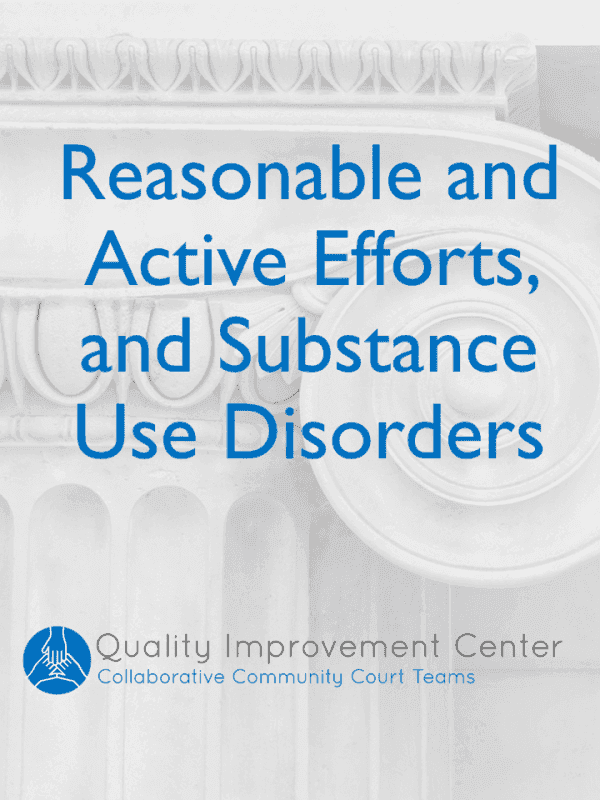Reasonable and Active Efforts, and Substance Use Disorders Toolkit

National Quality Improvement Center for Collaborative Community Court Teams (QIC-CCCT), American Bar Association Center on Children and the Law, and the Tribal Law and Policy Institute, 2020
This toolkit was designed for professionals working with families in or at risk of entering the child welfare system and addresses some of the challenges to making reasonable and active efforts findings in cases involving substance use. Judicious application of reasonable and active efforts statutes can enable parents and children to receive needed services that may improve permanency outcomes. The toolkit provides definitions, statutory requirements, examples of reasonable and active efforts, and a resource guide for further reading.
Topic(s): Family Treatment Courts
Section: Policy and Practice Resources
